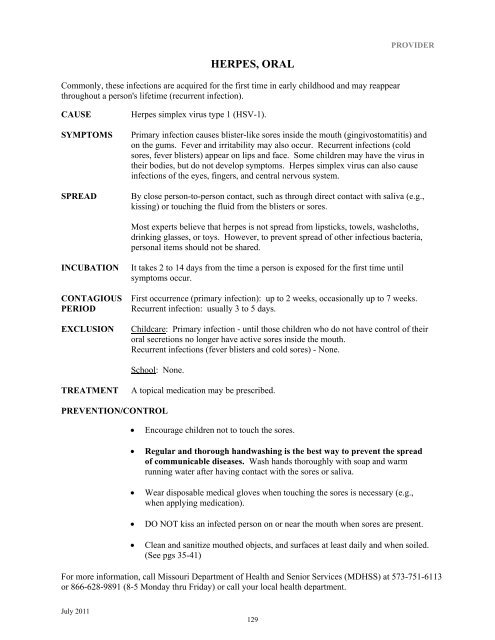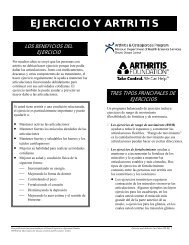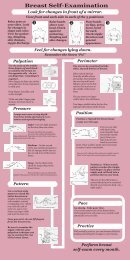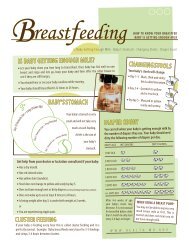Prevention and Control of Communicable Diseases - Missouri ...
Prevention and Control of Communicable Diseases - Missouri ...
Prevention and Control of Communicable Diseases - Missouri ...
You also want an ePaper? Increase the reach of your titles
YUMPU automatically turns print PDFs into web optimized ePapers that Google loves.
July 2011<br />
HERPES, ORAL<br />
Commonly, these infections are acquired for the first time in early childhood <strong>and</strong> may reappear<br />
throughout a person's lifetime (recurrent infection).<br />
CAUSE Herpes simplex virus type 1 (HSV-1).<br />
129<br />
PROVIDER<br />
SYMPTOMS Primary infection causes blister-like sores inside the mouth (gingivostomatitis) <strong>and</strong><br />
on the gums. Fever <strong>and</strong> irritability may also occur. Recurrent infections (cold<br />
sores, fever blisters) appear on lips <strong>and</strong> face. Some children may have the virus in<br />
their bodies, but do not develop symptoms. Herpes simplex virus can also cause<br />
infections <strong>of</strong> the eyes, fingers, <strong>and</strong> central nervous system.<br />
SPREAD By close person-to-person contact, such as through direct contact with saliva (e.g.,<br />
kissing) or touching the fluid from the blisters or sores.<br />
Most experts believe that herpes is not spread from lipsticks, towels, washcloths,<br />
drinking glasses, or toys. However, to prevent spread <strong>of</strong> other infectious bacteria,<br />
personal items should not be shared.<br />
INCUBATION It takes 2 to 14 days from the time a person is exposed for the first time until<br />
symptoms occur.<br />
CONTAGIOUS<br />
PERIOD<br />
First occurrence (primary infection): up to 2 weeks, occasionally up to 7 weeks.<br />
Recurrent infection: usually 3 to 5 days.<br />
EXCLUSION Childcare: Primary infection - until those children who do not have control <strong>of</strong> their<br />
oral secretions no longer have active sores inside the mouth.<br />
Recurrent infections (fever blisters <strong>and</strong> cold sores) - None.<br />
School: None.<br />
TREATMENT A topical medication may be prescribed.<br />
PREVENTION/CONTROL<br />
� Encourage children not to touch the sores.<br />
� Regular <strong>and</strong> thorough h<strong>and</strong>washing is the best way to prevent the spread<br />
<strong>of</strong> communicable diseases. Wash h<strong>and</strong>s thoroughly with soap <strong>and</strong> warm<br />
running water after having contact with the sores or saliva.<br />
� Wear disposable medical gloves when touching the sores is necessary (e.g.,<br />
when applying medication).<br />
� DO NOT kiss an infected person on or near the mouth when sores are present.<br />
� Clean <strong>and</strong> sanitize mouthed objects, <strong>and</strong> surfaces at least daily <strong>and</strong> when soiled.<br />
(See pgs 35-41)<br />
For more information, call <strong>Missouri</strong> Department <strong>of</strong> Health <strong>and</strong> Senior Services (MDHSS) at 573-751-6113<br />
or 866-628-9891 (8-5 Monday thru Friday) or call your local health department.
















